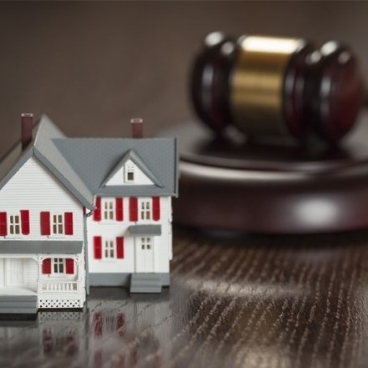The Potential of Adaptive Reuse in Real Estate: A Modern Solution
As urban spaces become increasingly saturated, the real estate industry is turning to innovative solutions to maximize the value of existing properties. One such approach is adaptive reuse, a strategy that transforms underutilized or obsolete properties into functional, profitable spaces. Let's delve into this intriguing aspect of the modern real estate landscape and discuss its potential implications for investors, buyers, and sellers.

The Rise of Adaptive Reuse
Adaptive reuse is not a new concept. For centuries, societies have repurposed existing structures to suit evolving needs. However, the economic, environmental, and cultural benefits of this strategy have recently propelled it into the spotlight. From converting industrial warehouses into trendy lofts to transforming old churches into unique residential homes, adaptive reuse is redefining real estate possibilities.
The Current State of Adaptive Reuse
Today, adaptive reuse is seen as a viable strategy for revitalizing urban communities. By breathing new life into abandoned or underused properties, cities can foster economic growth, promote sustainability, and preserve architectural heritage. This approach is particularly appealing in densely populated areas where land is scarce, and in historic neighborhoods where preserving architectural integrity is crucial.
Pros and Cons of Adaptive Reuse
Adaptive reuse offers several advantages. It can be cheaper and faster than new construction, particularly in areas with high land costs. It also promotes sustainable development by reducing waste and conserving resources. Furthermore, it often leads to unique, character-filled properties that appeal to modern buyers and tenants. However, adaptive reuse also has its challenges. These include regulatory hurdles, potential hidden costs associated with older buildings, and the need for creative problem-solving to make old spaces meet new needs.
The Impact of Adaptive Reuse on the Market
The rise of adaptive reuse is shaking up the real estate market. For investors, these projects can offer attractive returns, particularly in high-demand urban areas. For buyers and sellers, adaptive reuse can create unique opportunities and challenges. Buyers might find distinctive properties with historical charm, but they should also be prepared for potential maintenance issues. Sellers, on the other hand, could benefit from the growing demand for character-rich spaces.
The Future of Adaptive Reuse
As cities continue to evolve, adaptive reuse is likely to play an increasingly significant role in the real estate landscape. By understanding the potential benefits and challenges of this strategy, stakeholders can make informed decisions and potentially uncover untapped opportunities. From investors eyeing profitable conversions to buyers seeking unique properties, adaptive reuse offers a fresh perspective on the potential of existing real estate assets.




